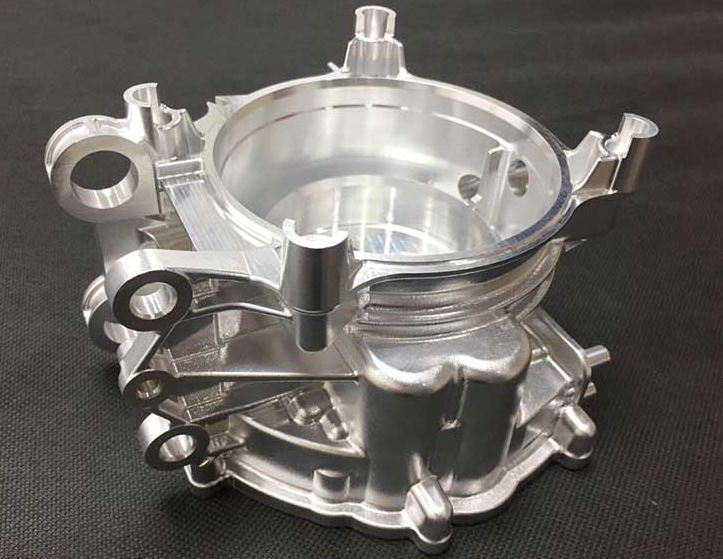The Only Guide to Alcast Company
The Only Guide to Alcast Company
Blog Article
How Alcast Company can Save You Time, Stress, and Money.
Table of Contents3 Easy Facts About Alcast Company ExplainedAlcast Company - TruthsThe 4-Minute Rule for Alcast CompanyOur Alcast Company PDFsFascination About Alcast CompanyFacts About Alcast Company Uncovered
Chemical Contrast of Cast Light weight aluminum Alloys Silicon promotes castability by decreasing the alloy's melting temperature and enhancing fluidity during spreading. Additionally, silicon contributes to the alloy's strength and wear resistance, making it valuable in applications where longevity is crucial, such as vehicle parts and engine parts.It additionally enhances the machinability of the alloy, making it much easier to refine into completed products. By doing this, iron adds to the total workability of aluminum alloys. Copper increases electric conductivity, making it beneficial in electric applications. It additionally enhances rust resistance and includes to the alloy's overall toughness.
Manganese adds to the stamina of light weight aluminum alloys and enhances workability (Foundry). It is generally used in functioned aluminum items like sheets, extrusions, and profiles. The visibility of manganese aids in the alloy's formability and resistance to fracturing during construction processes. Magnesium is a lightweight element that offers strength and impact resistance to aluminum alloys.
Rumored Buzz on Alcast Company
It allows the production of light-weight components with exceptional mechanical residential or commercial properties. Zinc enhances the castability of light weight aluminum alloys and assists manage the solidification process throughout casting. It improves the alloy's stamina and solidity. It is frequently located in applications where elaborate shapes and fine details are required, such as decorative spreadings and specific vehicle components.

The main thermal conductivity, tensile stamina, yield stamina, and elongation vary. Among the above alloys, A356 has the greatest thermal conductivity, and A380 and ADC12 have the least expensive.
Some Ideas on Alcast Company You Need To Know

In accuracy spreading, 6063 is fit for applications where intricate geometries and top notch surface finishes are vital. Instances consist of telecommunication units, where the alloy's exceptional formability permits for smooth and visually pleasing styles while keeping architectural stability. In the Lighting Solutions sector, precision-cast 6063 components produce sophisticated and effective illumination fixtures that need elaborate shapes and great thermal performance.
It leads to a better surface coating and far better corrosion resistance in A360. The A360 exhibits remarkable elongation, making it excellent for complicated and thin-walled elements. In precision spreading applications, A360 is fit for markets such as Customer Electronic Devices, Telecommunication, and Power Tools. Its improved fluidness permits intricate, high-precision components like smartphone cases and interaction tool housings.
8 Simple Techniques For Alcast Company
Its special buildings make A360 a valuable choice for precision casting in these industries, enhancing product toughness and high quality. Light weight aluminum alloy 380, or A380, is a commonly used spreading alloy with numerous distinctive features. It uses excellent castability, making it an optimal selection for precision casting. A380 shows good fluidity when molten, guaranteeing detailed and detailed mold and mildews are properly recreated.
In accuracy spreading, aluminum 413 shines in the Consumer Electronic Devices and Power Tools industries. This alloy's exceptional deterioration resistance makes it a superb option for outdoor applications, guaranteeing long-lasting, sturdy products in the stated industries.
Some Known Questions About Alcast Company.
As soon as you have chosen that the light weight aluminum pass away casting process is appropriate for your project, an essential next action is selecting one of the most appropriate alloy. The light weight aluminum alloy you pick will substantially affect both the spreading process and the residential or commercial properties of the end product. As a result of this, you need to make your decision thoroughly and take an enlightened strategy.
Establishing the most ideal aluminum alloy for your application will certainly suggest weighing a broad selection of qualities. These relative alloy characteristics follow the North American Pass Away Casting Association's standards, and we've separated them right into two categories. The initial group addresses alloy features that influence the production procedure. The 2nd covers qualities influencing the residential properties of the end product.
Things about Alcast Company
The alloy you pick for die casting directly affects a number of elements of continue reading this the spreading procedure, like exactly how simple the alloy is to function with and if it is vulnerable to casting defects. Hot splitting, also called solidification cracking, is a regular die spreading flaw for aluminum alloys that can cause internal or surface-level rips or fractures.
Certain light weight aluminum alloys are a lot more prone to warm cracking than others, and your selection should consider this. Another usual problem found in the die spreading of aluminum is die soldering, which is when the cast sticks to the die wall surfaces and makes ejection hard. It can harm both the cast and the die, so you ought to try to find alloys with high anti-soldering homes.
Rust resistance, which is already a significant characteristic of light weight aluminum, can differ significantly from alloy to alloy and is a necessary characteristic to take into consideration relying on the environmental problems your product will certainly be subjected to (aluminum casting company). Put on resistance is one more building typically looked for in aluminum items and can differentiate some alloys
Report this page